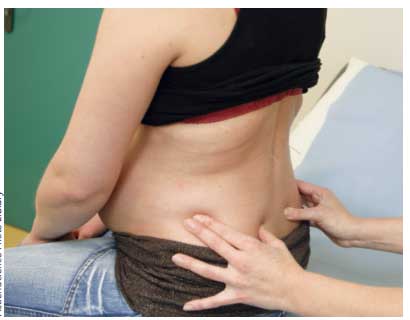In our regular round-up of research that's relevant to physiotherapy staff, Janet Wright looks at CSP’s contribution to WCPT congress.
CSP members presented their work to the world this month. Some 150 UK physiotherapists attended the congress of the World Confederation for Physical Therapy held in Singapore, many of them giving presentations, displaying their work in poster form or taking part in debates. Topics covered included professional issues, policy and management as well as clinical research.
In addition to the CSP team of staff and officials, 10 CSP members were there to present papers, funded by the society’s charitable trust.
Research was presented by CSP assistant director Sue Hayward-Giles, director of practice and development Natalie Beswetherick, international adviser Birgit Mueller-Winkler, professional advisers Ruth ten Hove and Stuart Palma, council member and Keele University lecturer Jonathan Hill and his colleague Jackie Waterfield.
The CSP team played a significant role in the event. CSP treasurer Helena Johnson chaired the WCPT futures forum while chief executive Karen Middleton, Ms Beswetherick, CSP fellow Ann Green, Dr Hill, professional adviser Ralph Hammond and Dr Johnson chaired or facilitated sessions and took part in panel debates.
For full details, see the WCPT 2015 Congress programme.
Acupuncture in pregnancy

Hip and knee replacement
CSP professional adviser Ruth ten Hove told congress about a review of rehabilitation pathways for hip fracture and knee replacement. It found inadequate funding and widespread variation in practice and outcomes. Yet it showed that well-designed and funded physiotherapy services provide excellent rehabilitation. The results were used in the British Orthopaedic Association’s national review.
Independent prescribing
Worldwide physiotherapy practice may be enhanced by the introduction of prescribing rights in key clinical pathways, CSP director Natalie Beswetherick told the international audience. But physiotherapists need to make a robust case for a change in legislation. The UK achieved the right to prescribe independently after showing that this could safely improve clinical effectiveness and patient satisfaction.
The impact of stratified care on lower back pain
Professor Nadine Foster convened a symposium on stratified care for lower back pain, with an international panel including Jonathan Hill of Keele University.
Stratified care categorises patients into groups, on the basis of characteristics such as underlying mechanisms or likely response, and fast-tracks them to the treatment that’s most likely to work for them.
Different approaches developed in the UK, Australia and the US all look promising. But none has yet attempted to subgroup patients across the whole spectrum of physical, pharmacological and surgical treatments. Panellists warned of challenges ahead, to ensure that future care is based on good evidence and to avoid confusion in clinical practice.
In Brief
- The NHS could save £1.50 for every £1 spent if everyone in England needing physiotherapy received it, Sue Hayward-Giles and Stuart Palma told congress. They were presenting an economic modelling tool commissioned by the CSP to provide evidence of physios’ ability to improve quality and reduce costs.
- Birgit Mueller-Winkler told congress about a set of resources the CSP developed to help overseas-qualified physios adapt to UK practice, including an online discussion network, induction days and a mentoring scheme.
- Codes of conduct, matters of professionalism and scope of practice are being challenged in the UK, said Ralph Hammond. He presented a study examining physios’ values and how they construct their professional identity.
- More research is needed to find ways of developing physios’ role in public health, said Stuart Palma, as their knowledge and skills can make an important contribution.
- The NHS in England aims for a paperless health service by 2018, using SNOMED CT as the terminology standard. Sue Hayward-Giles’ poster presented a methodology the CSP has produced for developing SNOMED CT subsets, using input from physios rather than leaving system vendors to define professional requirements.
Members attend event thanks to charitable trust awards
Ten CSP members each won £1,000 Robert Williams awards from the CSP’s charitable trust, helping them to present their research in Singapore.
- Devdeep Ahuja looked at adherence to physiotherapy programmes among musculoskeletal outpatients.
- Lindsay Cameron’s subject was a physio-led neurology drug trial.
- Sarah Chamberlain spoke about an intervention for patients with chronic cough, using physiotherapy and speech and language therapy.
- Kirsty Duncan presented a scale measuring healthcare practitioners’ attitudes and beliefs about musculoskeletal pain.
- Peter Goodwin spoke about aquatic physiotherapy for people with rheumatoid arthritis.
- Sian MacRae showed that rocker soles were no more effective than flat-sole shoes against back pain.
- Sionnadh McLean told the congress why appointment reminder systems are effective but not optimal.
- Jonathan Quicke looked at the relationship between attitudes and activity in older people with knee pain.
- Annina Schmid spoke about entrapment neuropathies, asking whether small fibres have been neglected.
- Judy Scopes’ presentation and poster covered outcome measures in prosthetic rehabilitation of lower-limb amputees.
Author
Janet WrightNumber of subscribers: 0




































